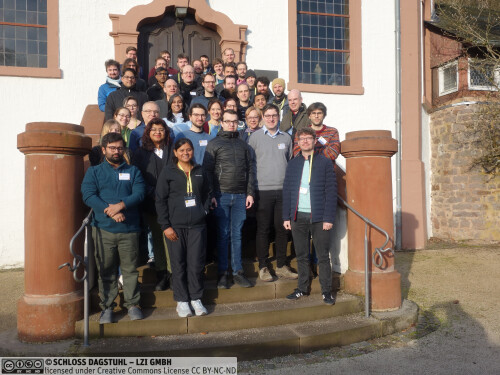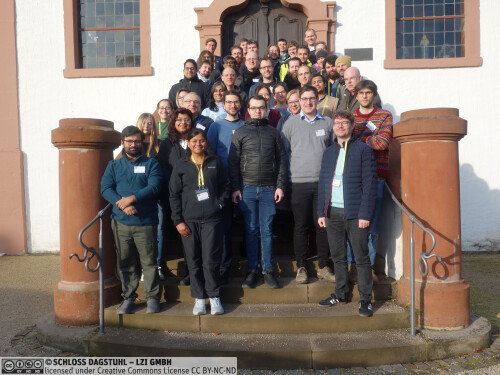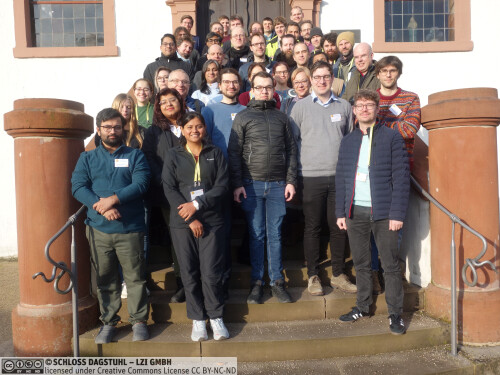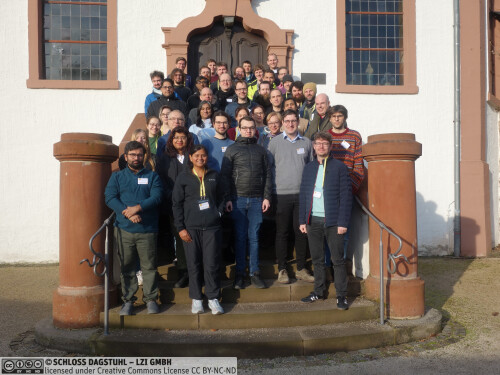Dagstuhl Seminar 25041
Solving Problems on Graphs: From Structure to Algorithms
( Jan 19 – Jan 24, 2025 )
Permalink
Organizers
- Akanksha Agrawal (Indian Institute of Techology Madras, IN)
- Maria Chudnovsky (Princeton University, US)
- Daniel Paulusma (Durham University, GB)
- Oliver Schaudt (Bayer AG - Leverkusen, DE)
Contact
- Michael Gerke (for scientific matters)
- Christina Schwarz (for administrative matters)
Shared Documents
- Dagstuhl Materials Page (Use personal credentials as created in DOOR to log in)
Schedule
Many discrete optimization problems can be modelled as graph problems, leading to a long list of well-studied problems, which include graph partitioning, covering and packing problems, network design problems, width parameter problems, and so on. Most of these graph problems are computationally hard. However, this situation may change if we require the input to belong to some special graph class. This leads to two fundamental questions, which lie at the heart of our Dagstuhl Seminar: for which classes of graphs can a computationally hard graph problem be solved in polynomial time, and for which classes of graphs does the problem remain hard?
In our seminar, we aim to discover new insights that lead to results for a whole range of problems rather than just for a single problem alone. That is, our goal is to determine general properties, such that large classes of graphs problems sharing certain common features can be solved efficiently on a graph class if and only if the graph class has these properties. For this purpose, we aim to bring together researchers from Discrete Mathematics and Theoretical Computer Science.
Topics of the seminar will include:
- Graph Algorithms
- Graph Classes
- Graph Containment Relations
- Parameterized Complexity
- Width Parameters.
We plan an appropriate number of survey talks, presentations of recent results, open problem sessions, and ample time for problem solving. As outcomes we expect to develop new, general methodology for solving a large variety of graph problems. This will also increase our understanding of how the complexities of different graph problems are related to each other.
 Akanksha Agrawal, Maria Chudnovsky, Daniel Paulusma, and Oliver Schaudt
Akanksha Agrawal, Maria Chudnovsky, Daniel Paulusma, and Oliver Schaudt
Please log in to DOOR to see more details.
- Akanksha Agrawal (Indian Institute of Techology Madras, IN) [dblp]
- Bogdan Alecu (University of Leeds, GB)
- Édouard Bonnet (ENS - Lyon, FR) [dblp]
- Maria Chudnovsky (Princeton University, US) [dblp]
- Julien Codsi (Princeton University, US)
- Konrad Dabrowski (Newcastle University, GB) [dblp]
- Esther Galby (TU Hamburg, DE) [dblp]
- Jan Goedgebeur (KU Leuven, BE) [dblp]
- Petr A. Golovach (University of Bergen, NO) [dblp]
- Meike Hatzel (IBS - Daejeon, KR) [dblp]
- Lars Jaffke (Norwegian School of Economics - Bergen, NO)
- Bart Jansen (TU Eindhoven, NL) [dblp]
- Jorik Jooken (KU Leuven, BE)
- Tuukka Korhonen (University of Copenhagen, DK) [dblp]
- Stefan Kratsch (HU Berlin, DE) [dblp]
- Michael Lampis (University Paris-Dauphine, FR) [dblp]
- Paloma Lima (IT University of Copenhagen, DK) [dblp]
- Daniel Lokshtanov (University of California - Santa Barbara, US) [dblp]
- Barnaby Martin (Durham University, GB) [dblp]
- Martin Milanic (University of Primorska, SI) [dblp]
- Pranabendu Misra (Chennai Mathematical Institute, IN) [dblp]
- Andrea Munaro (University of Parma, IT) [dblp]
- Daniel Neuen (MPI für Informatik - Saarbrücken, DE) [dblp]
- Jelle Oostveen (Utrecht University, NL)
- Sukanya Pandey (RWTH Aachen, DE)
- Fahad Panolan (University of Leeds, GB) [dblp]
- Daniel Paulusma (Durham University, GB) [dblp]
- Marcin Pilipczuk (University of Warsaw, PL) [dblp]
- Michal Pilipczuk (University of Warsaw, PL) [dblp]
- Pawel Rzazewski (Warsaw University of Technology, PL) [dblp]
- Saket Saurabh (The Institute of Mathematical Sciences - Chennai, IN) [dblp]
- Oliver Schaudt (Bayer AG - Leverkusen, DE) [dblp]
- Roohani Sharma (MPI für Informatik - Saarbrücken, DE) [dblp]
- Mark Siggers (Kyungpook National University - Daegu, KR)
- Siani Smith (University of Bristol, GB)
- Ramanujan Sridharan (University of Warwick - Coventry, GB) [dblp]
- Csaba Tóth (California State University - Northridge, US) [dblp]
- Nicolas Trotignon (CNRS - Ecole Normale Supérieure de Lyon, FR) [dblp]
- Kristina Vuskovic (University of Leeds, GB) [dblp]
- Michal Wlodarczyk (University of Warsaw, PL) [dblp]
- Viktor Zamaraev (University of Liverpool, GB) [dblp]
Related Seminars
Classification
- Computational Complexity
- Data Structures and Algorithms
- Discrete Mathematics
Keywords
- computational complexity
- graph classes
- graph containment relations
- graph width parameters
- graph algorithms





 Creative Commons BY 4.0
Creative Commons BY 4.0
